Conflicting reports on possible Abe trip
Updated: 2015-08-19 11:52
By Zhang Yunbi in Beijing, Cai Hong in Tokyo and Chen Weihua in Washington(China Daily USA)
|
|||||||||
Some Japanese officials have dismissed media reports that said Japanese Prime Minister Shinzo Abe will start a visit to China on Sept 3, the same day as China's military parade in Beijing to mark the 70th anniversary of victory in World War II.
Chinese observers said that as political difficulties continue to cloud the countries' relations, some Japanese media are eager for a publicity stunt to help Tokyo decide the best time to reveal whether Abe will come.
Japan's Kyodo News Agency said on Monday: "Abe plans to visit China in September, and hopes to achieve a leaders meeting between Japan and South Korea this autumn. Coordinating efforts have been boosted, but obstacles remain."
A front-page story in Mainichi Shimbun on Tuesday quoted "multiple sources involved in diplomacy" as saying that "Prime Minister Shinzo Abe is set to visit China on Sept 3 to meet with President Xi Jinping".
The newspaper said Abe may arrive in the afternoon to avoid the parade in the morning, and "the two governments are finalizing consultations over the summit meeting".
However, Bloomberg reported later that "Japanese Foreign Ministry spokeswoman Takako Ito said by phone that nothing has been decided yet."
Also, Beijing Youth Daily said the Japanese Embassy in Beijing "disagrees" with the details in the Mainichi report, and there is no confirmation whether Abe will visit China or attend any kind of activity.
Zhang Jingquan, a professor of Northeast Asia studies at Jilin University, said the Japanese reports show that Abe is waiting for the best time to reveal his decision, and "imposing ambiguity is routine in Japan's political arena to maximize private benefits".
Abe "has been very sophisticated in dealing with China, South Korea and the United States", and he is waiting for favorable conditions, Zhang said.
Gao Haikuan, vice-president of the China Society of the History of Sino-Japanese Relations, said Abe is possibly "playing a diplomacy card" to score more public support after his statement on Friday about World War II helped him regain 5 percentage points from his record low rating.
The plan to visit China was unveiled by media to impress people that "he is capable of surviving the existing political difficulty", but Abe may have miscalculated because "he has not brought substantial changes to his incorrect historical outlook", Gao said.
In Washington, Michael Green, senior vice-president for Asia and Japan chair at the Center for Strategic and International Studies, said that the Chinese official response to Abe's Aug 14 statement is fairly moderate.
"Since November last year when Xi Jinping and Abe met for the summit, although there is continuing geostrategic rivalry between China and Japan, both leaders try to stabilize the situation for their domestic political and economic reasons," he told a seminar on Japan-South Korea relations after Abe's statement, held at the Heritage Foundation.
In his statement on Aug 14, one day ahead of the 70th anniversary of the end of World War II, Abe said "Japan has repeatedly expressed feelings of deep remorse and heartfelt apology for its actions during the war," adding that "such positions articulated by previous cabinets will remain unshakable into the future".
Although Abe's statement wasn't enough to many people in China and South Korea, it was regarded by some as a step forward in some aspects from his previous rhetoric.
Contact the writers through zhangyunbi@chinadaily.com.cn
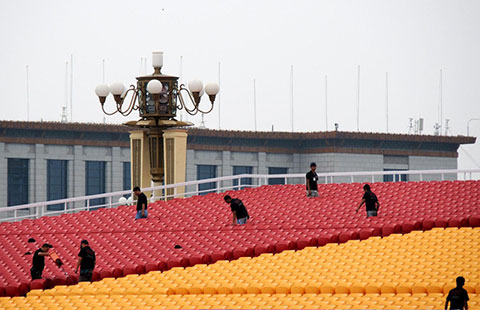
 The changing looks of Beijing before V Day parade
The changing looks of Beijing before V Day parade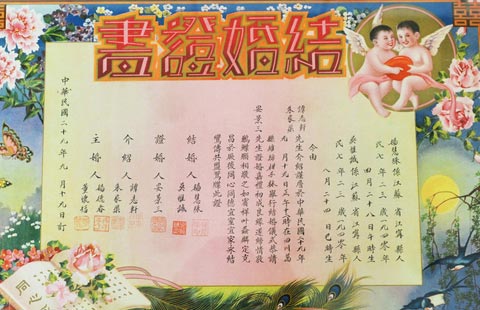
 Nanjing displays ancient marriage, divorce certificates
Nanjing displays ancient marriage, divorce certificates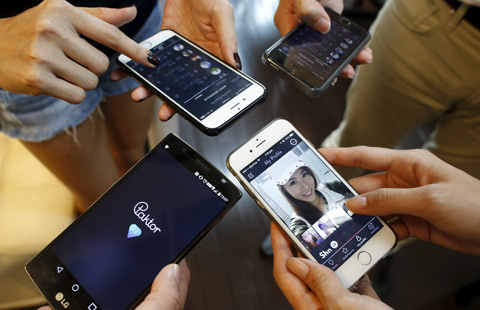
 Top 10 Android app stores in China
Top 10 Android app stores in China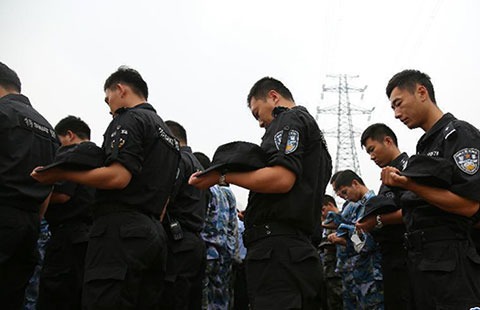
 Ceremony held to mourn victims of Tianjin blasts
Ceremony held to mourn victims of Tianjin blasts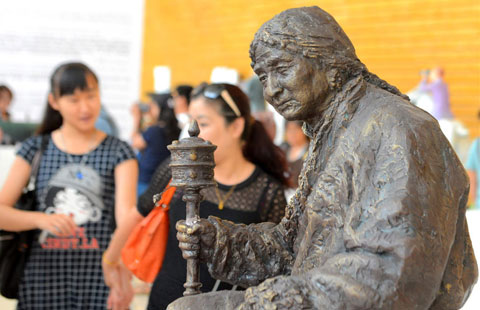
 Silk Road city displays sculptures at exhibition
Silk Road city displays sculptures at exhibition
 Top 10 companies with the most employees
Top 10 companies with the most employees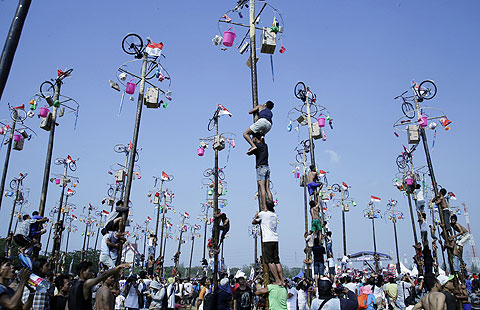
 Men in Indonesia climb greased poles to win prizes
Men in Indonesia climb greased poles to win prizes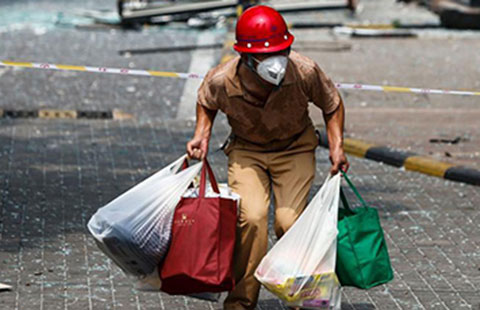
 In pictures: Life near Tianjin blasts site
In pictures: Life near Tianjin blasts site
Most Viewed
Editor's Picks

|

|

|

|

|

|
Today's Top News
Chemical plants to be relocated in Tianjin blast zone
Giant panda Mei Xiang at US zoo expected to give birth soon
S Korean president to participate in China's war anniversary
Thucydides Trap not relevant to today's Sino-US ties: Opinion
Fitch warns insured losses from Tianjin explosions could reach $1.5b
Conflicting reports on possible Abe trip
Hillary Clinton breaks with Obama on Arctic oil drilling
At UN, China backs regional peace efforts
US Weekly

|

|







